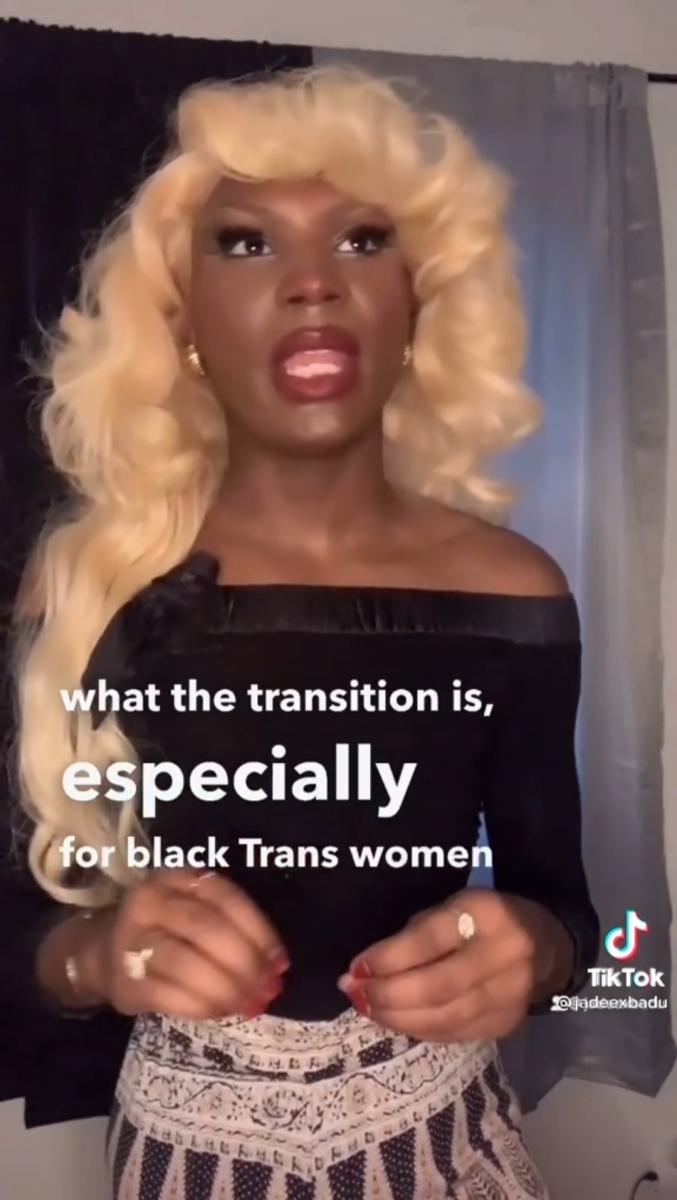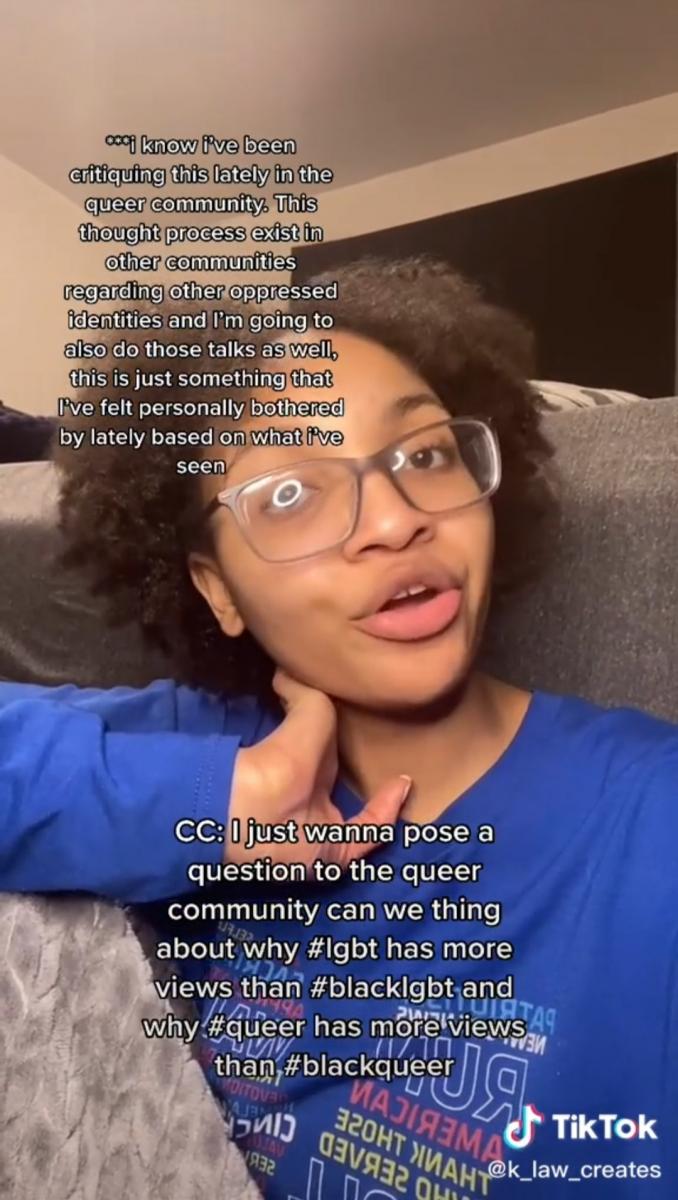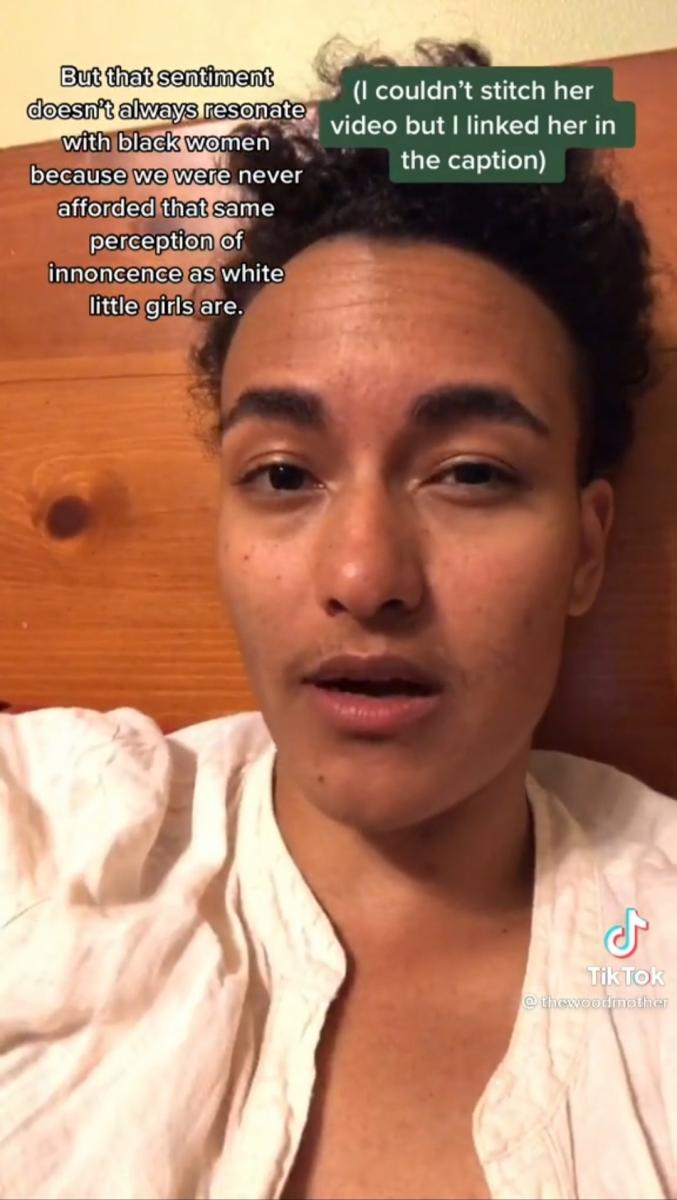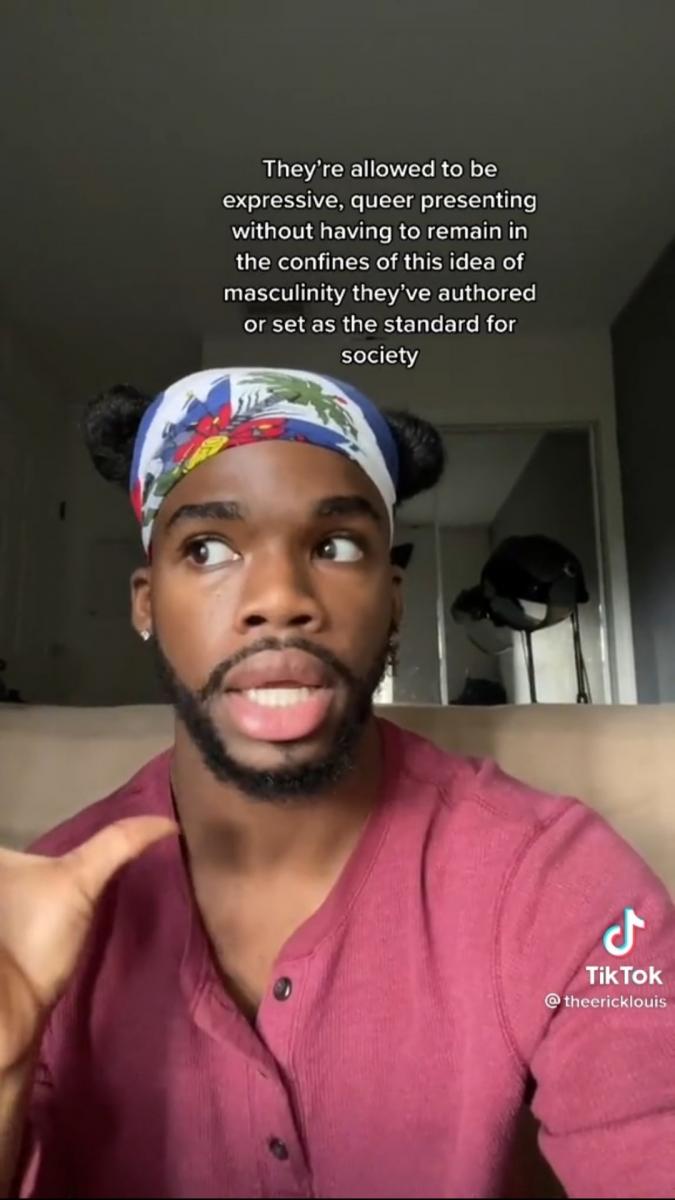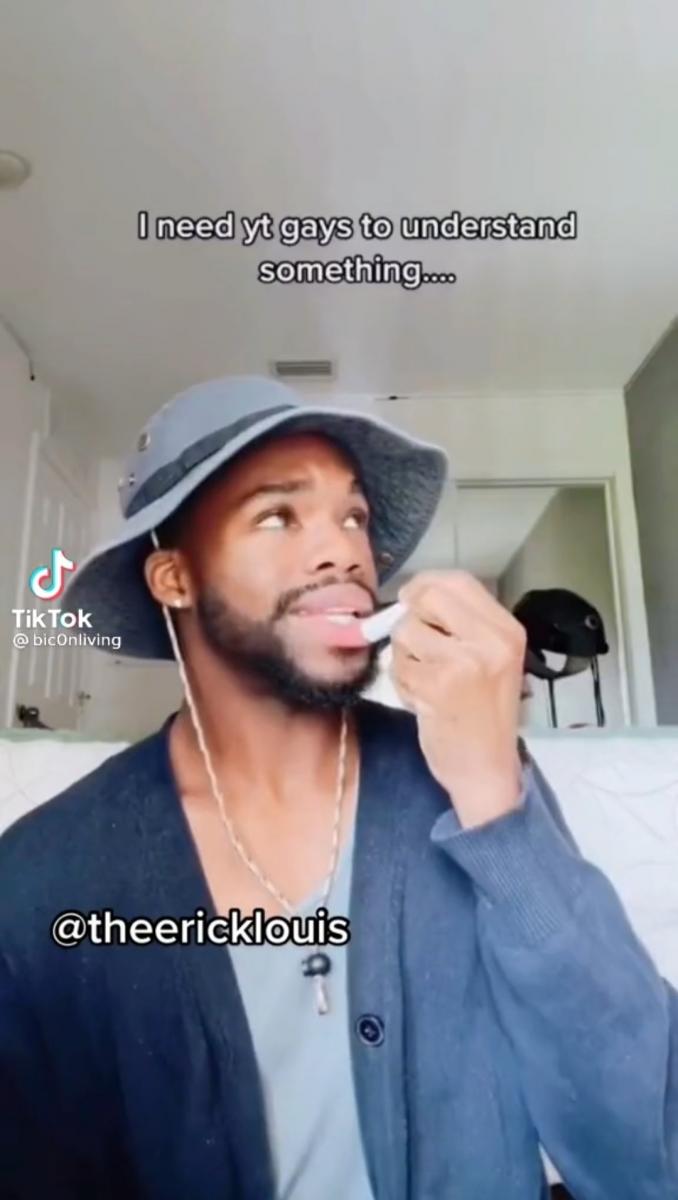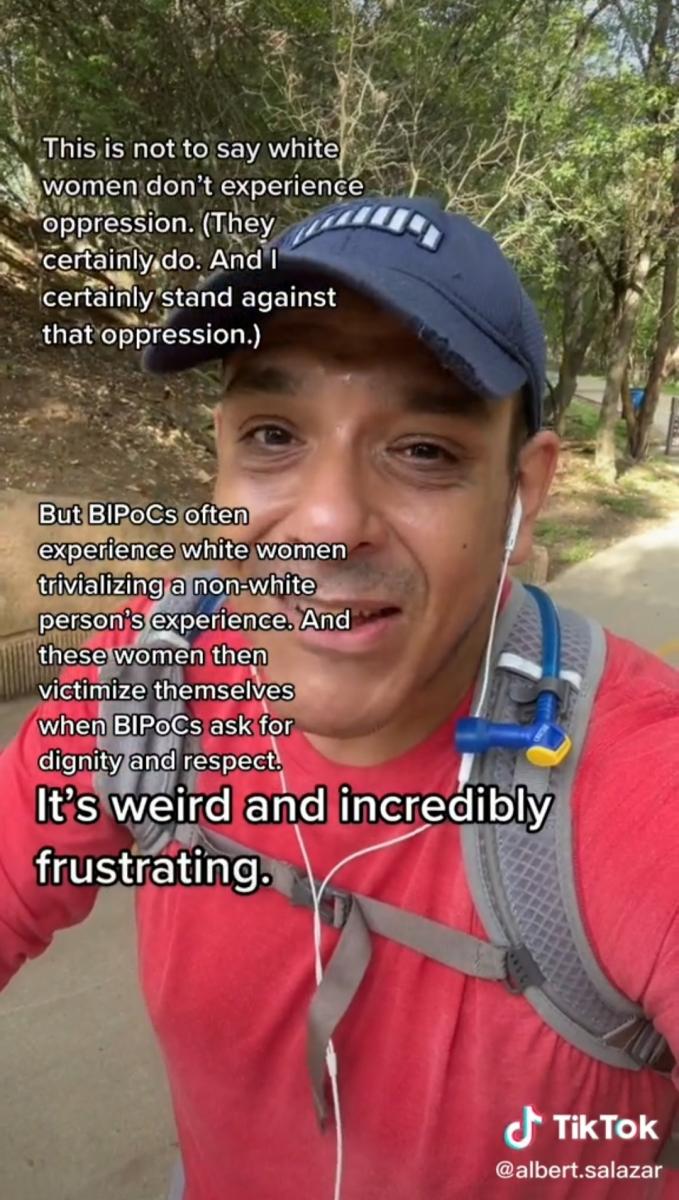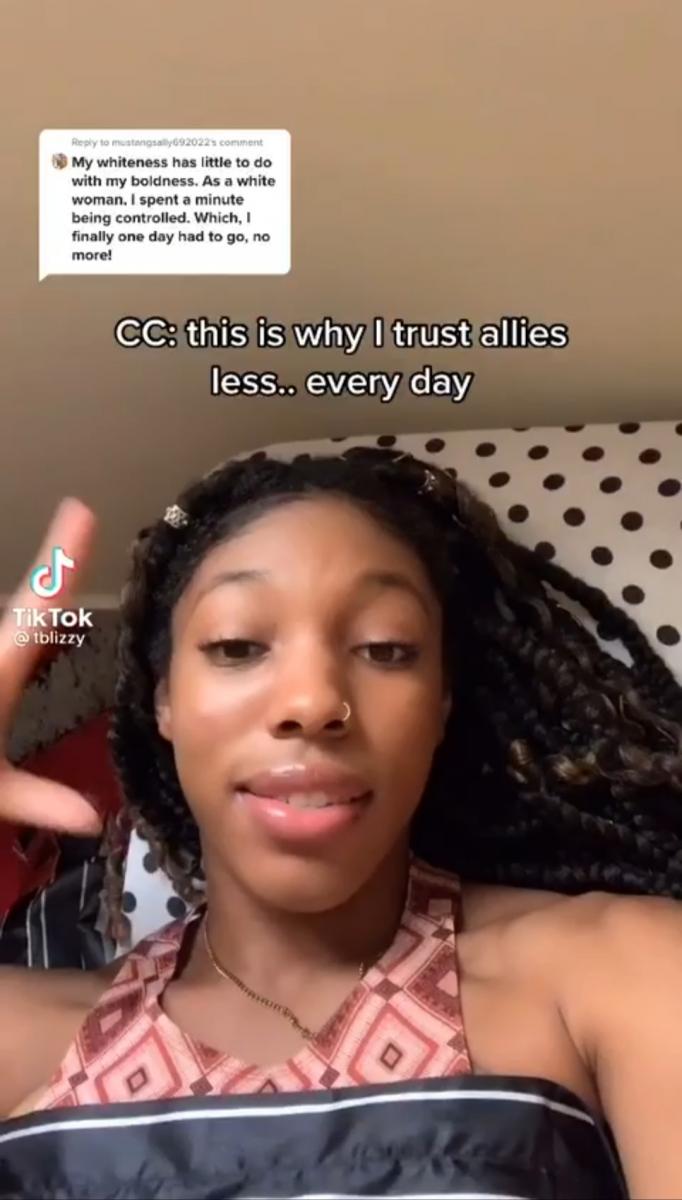
Being black and queer: TikTok analysis
Black queer people are an important, but understudied part of the LGBTQIA+ community. During the Stonewall riots, which were the most important event in the gay liberation movement, black queer woman Marsha P. Johnson was considered the leader. However, the importance of Black queer people in the community, the oppression of and discrimination against them has not disappeared. They are often overlooked in research and do not get a lot of media representation. The marginalized group encompasses two marginalized identities that affect each other: being Black and being queer. That’s why their experiences differ from those of straight Black people and non-Black queer people.
Limited research has been done on specifically this group, but hate crimes on both Black people and LGBTQIA+ people have risen dramatically since last year (Ben Chikha, 2021; Mangan, 2021). Several Black queer content creators have spoken up about the obstacles they face and the concerns they have. We have decided to use their videos, because they show an insight in their point of view and we deemed them educational. Besides that, we thought these creators made clear points that were worth discussing.
In this article, we identify three themes: media representation, Black queer people and gender, and lack of awareness of White privilege. We selected the videos based on these three categories. These themes are adressed by conducting sociopolitical discourse analysis on a number of TikToks posted by Black queer people. We chose sociopolitical discourse analysis, because we wanted to focus on the message rather than the way it was phrased.
Black and Queer Media representation
Because being Black and queer has been viewed as a taboo for a long time, there isn’t a lot of media representation for this social group. In the Black community and families, being queer as a Black person is met with criticism and is not viewed as acceptable. India Hosten-Hughes argues that this is a direct impact of slavery as Black people were taught to be controlled and reserved to enter ‘’hostile society’’ (Hosten-Hughes, 2021). Black queer people feel deviant to the rest of society. Taking a look on TikTok will show that Black queer people are trying to take back the narrative and are fighting for more representation in the media.
TikTok user Jade Marie Eichelberger made a video on the lack of representation in the media for dark-skin Black trans women. The transition for light-skin Black trans women has been romanticized and over-glamorized to the point that Black women of a darker shade don’t feel comfortable enough to transition because they don’t fit a certain mold. Eichelberger talked about how dark-skin Black women have never been glorified as much as light-skin Black women and how this should change (Eichelberger, 2021).
African-American woman Moya Bailey, a scholar at the Northwestern University, wrote an article about how Black trans women have been redefining their representation. Similar to what Eichelberger described, Bailey says that this marginalized group has far too little representation that is actually healing and helpful towards Black trans women. She writes about how trans people of color do not only redefine their representation by protesting on media platforms but also by blowing new life into older cultures and movements from the 1970s, 1980s and 1990s. Ballroom culture for example, was created by queer people of color, and trans people of color played a big part in this too. Younger queer voices are creating innovative web series, visibility projects and funding initiatives that reimagine mainstream narratives about their identities (Bailey, 2016).
Another TikTok user who goes by the name of K-Law commented on how it is very noticeable on the TikTok platform that the hashtags: #blacklgtbq and #blackqueer have significantly less views than the hashtags: #lgbtq and #queer. She questions whether queer White people only feel comfortable watching content that they can relate to but doesn’t hold them accountable (K-Law, 2021). Researchers from the Journal of Lesbian studies at the University of Toronto wrote about this in a report: the normative idea of a queer person is White. Representations of LGBTIQA+ people are mostly synonymous with being White in dominant sociocultural representations and discourses. Discourses of keeping queer voices of color silent are normal in the queer community. As K-Law indeed suspected, it has been found that White queer people are usually in denial about their White privilege. The first step to getting more representation for queer people of color is to break down this denial.
The consequences of having White queer people being the norm are also illustrated in the report. Racial sexualization (as was talked about by Eichelberger) has become a big problem in the queer community. Interviews with Black queer women showed that even their own family and friends advised them to hide their queerness. One candidate said:
"My mom’s big issue is you’re a working class woman of color, there’s no way you’re ever going to be able to buy a house unless you’re married to a man. She knows that from her own lived experience. She’s like “you will always be poor because you’re queer.’’" (FOC, 2014)
This type of comments can be the consequence of too little representation for Black queer people. People from the Black community will lack awareness and think it’s best to hide queerness, which is why redefining representation is key (Logie & Rwigema, 2014).
Black queer people and gender
We’ve just seen that the lack of representation of Black LGBTQIA+ folks in the media is a problem. The same goes for the lack of awareness of White privilege people within the LGBTQIA+ community seem to have. Unfortunately, the problems don’t stop there. TikTokers @theericklouis and @thewoodmother have both made videos pointing out a problem regarding the limitations of gender expression that Black queer people experience.
The start of the video of TikToker @thewoodmother ties in with the problem of the lack of awareness of White privilege. In their video they bring up the fact that White female TikToker @zoeamira1 mentioned the patriarchal pressure for women to remain in the perpetual state of so-called “little girlhood”. “That sentiment does not always resonate with Black women”, @thewoodmother says. They go on explaining that little Black girls “were never afforded the same type of perception of innocence as little White girls”. Black girls are perceived to grow up quicker, so they are more sexualized from a young age. When they grow up that perception shifts to one of Black women as more masculine (or bossy, angry, etc). To clarify this statement they name an example. “Think of the kind of hate shown towards Michelle Obama or Serena Williams (and the caricatures of them that make them seem grotesque and animal-like).”
Mel Michelle Lewis and Shannon J. Miller (2018) also discussed this. “We are not intimidating, people are intimidated, but it is not because we are intimidating! But, I am very confident and I stand in my power.” Lewis said she thinks the feeling of intimidation that White people experience around Black women comes from them not being used to “Black women's very existence in a space, in the academy, much less their confidence and intellect.” White people don’t know what to expect, because “they have received the controlling images, so they are intimidated by Black women's being.” (Lewis & Miller, 2018). This only increases when you look at the position the two have as Black queer femme women, because when they asked their class who had ever had a Black queer professor, no hands were raised. This is an entirely new concept for many: students don’t know what it is like to have a Black queer woman as their professor. Lewis also said their identity makes the judgement from colleagues in the workfield extra harsh. For example when it comes to e-mails. “If I have an error I do not belong in the academy, because they already think I don’t belong, and that I should be scolded.”
To come back on the previously mentioned case though, despite being AFAB (assigned female at birth) the world has perceived @thewoodmother as less of a woman, because they’re Black. They wonder if this is what made them embrace androgyny, even before identifying as non-binary.
“Even though I’m proud of the way I look- I’m proud of my facial hair, I feel like the things that give me gender euphoria also put a bigger target on my back for racists, who are looking for any excuse to remind me of how different I am from their white beauty standard.” (thewoodmother, 2021)
The TikToker @theericklouis also noticed a difference in freedom of gender expression. He noticed that “White men are not pigeonholed by masculinity in the ways Black men are”. Their whiteness is the thing that allows them to be more expressive. They can be more queer presenting, because they don’t have to “remain in the confines of this idea of masculinity they have authored or set as the standard for society”. White men don’t get demonized or othered for experimenting with their gender expression and/or sexuality like Black men do.
Like @theericklouis addresses in his video: Black men are not permitted the same level of openness when it comes to sex. Black queerness draws attention to Black sexuality, both criticizing it and making it more prominent (Molumbi, 2018). That seems to be something that makes many people uncomfortable. It’s uncomfortable, perhaps even confronting, for them to see something differ so drastically from the norms they have set. Both Black people and LGBTQIA+ people are minorities, so adding the factor queerness to the factor blackness leads to queer Black men being even more deviant from the norm than White queer men. The phenomenon surrounding intersectionality of identities was also mentioned by Molumbi (2018) in a research paper about violence against Black queer people. “Systemic violence against black queer people involves a complex interdependency between antiblackness and antiqueerness within dominant society, positioning black queerness in the farthest reaches of society, and rendering black queer bodies as particularly victimizable.”
Lack of awareness
In a video, we see @theericklouis again, a Black queer creator on TikTok, calling out White gays, saying “I need white gays to understand something…”. This is stitched by a white gay, saying “we are not holding the summer 2021 oppression Olympics”. In return, @bic0nliving explains why oppression is not the same for White gays. He states that “oppression works on visibility” (bic0nliving, 2021). Black people cannot hide their identity of being Black, while White gay people can hide their gay identity. This is in line with research from Hunter (2010), which states that “Black gay men do not identify directly with a gay identity”. Some Black queer people see the Black-gay identity as united, while others may lean more heavily on one, and others see their gay identity as private and their Black identity as public. White queer men can be ignorant of what these identities mean to Black queer people and how that influences them.
A similar problem is seen with White women. TikTok user @albert.salazar has made a video expressing his frustration with White women who think they have less privilege than people of color. While women experience oppression in the form of misogyny, they do have more privilege than people of color, especially people of color that also have other marginalized identities (Salazar, 2021).
In a similar vein, content creator Tyra Blizzard who goes by @tblizzy also shows how white “people are unable to see the world through a lens other than their own”. @tblizzy makes a comparison with ableism to explain her point, where getting rid of all cars would be great for the environment, but would be detrimental for disabled people that need a car to get anywhere. She also shows how the White woman she replied to does not listen, but decides to make 10 video’s defending herself and then writes “Black women, I do not want to be your “ally”” (Blizzard, 2021). Both these TikToks show how White people will use White innocence, White vulnerability and white Wragility to deflect from their racism or free themselves from considering the racial implications of their actions (Kanjere, 2019).
Through these three videos we see how White people with marginalized identities do not always see the privilege they still have. They will also weaponize their marginalized identities to disregard experiences of other marginalized people. While the content creators of these TikToks do not deny that White gays or White women experience oppression, they do want to make it clear that their oppression is not the same as that of people of color. Through TikTok we also see how queer Black people use the app’s short videos to speak up about the issue of White privilege of people with marginalized identities, and how White people’s experiences and oppression is not equal to that of Black people. Black queer creators will make statements of their own, as well as responding to other people’s videos and replies. Through TikTok, they can offer their own insights and help educate White people that do not recognize their privilege despite also facing oppression.
The black queer identity on TikTok
Through Tiktok, we see how Black queer people present their identity, and the struggles that come with it. By making TikTok videos, Black queer content creators speak up about issues that affect their identity and how this makes their experiences different from White queer people. Representation wise, we can note that even though Black queer voices are seemingly being silenced, they still find ways to redefine their representation in several ways. They don’t only do this through social media platforms but also by blowing new life into old movements and creating their own versions of these with a modern twist. Using the TikTok platform among other media, they criticize the norm and question the status quo, as well as educate people who do not share their experiences. In the current day and age we see Black queer voices becoming more prominent on social media. Platforms like TikTok allow these Black queer creators to gain an audience and speak to this audience about topics that were previously considered taboo. It highlights the importance of minorities being able to find spaces where they can freely express themselves.
References
Bailey, M. (2016). Redefining Representation: Black Trans and Queer Women’s Digital Media Production. Screen Bodies, 1 (1): 1-16.
Ben Chikha, F. (2021, September 27). Combating rising hate against LGBTI people in Europe. Parliamentary Assembly.
bic0nliving. (2021, June 25th). Y’all so embarrassing.. . Retrieved from TikTok
Blizzard, T. (2021, May 19th). Reply to @mustangsally692022 & she was my mutual.. so many “allies” are OPS I’m telling y’all. Retrieved from TikTok
Eichelberger, J. M. (2021, April 2nd). Why do black trans women have to look a certain way to be seen and heard? Retrieved from Tiktok
Hosten-Hughes, I. (2021, September 30th). What does it mean to be Black and queer? Stonewall.
Hunter, M. A. (2010). All the Gays are White and all the Blacks are Straight: Black Gay Men, Identity, and Community. Sexuality Research and Social Policy, 7, 81–92. https://doi.org/10.1007/s13178-010-0011-4
Kanjere, A. (2019). Defending race privilege on the internet: how whiteness uses innocence discourse online. Information, Communication & Society, 22(14): 2156–2170. https://doi.org/10.1080/1369118X.2018.1477972
K-Law. (2021, January 28th). Just following up on these thoughts. Retrieved from TikTok
Lewis, M. M., & Miller, S. J. (2018). How does it feel to be a problem? a conversation between two feminist black queer femme chairs. Feminist Formations, 30(3): 79–90. https://doi.org/10.1353/ff.2018.0039
Logie, C. H., & Rwigema, M.-J. (2014). The Normative Idea of Queer is a White Person: Understanding perceptions of white privilege among lesbian, bisexual and queer women of color in Toronto. Journal of Lesbian Studies, 18(2):174-91, https://doi.org/10.1080/10894160.2014.849165
Louis, R. (2021, June 13th). Retrieved from TikTok
Mangan, D. (2021, August 30). Hate crimes against Asian and Black people rise in the U.S., FBI says. CNBC.
Molubi, M. (2018). Violence Against Black Queer People: The Intersections of Antiblackness and Antiqueerness in North American Society. Research Essay.
Salazar, A. (2021, July 15th). I don’t normally play the oppression olympics cause I wouldn’t win (lose). Gold medals go to black and indigenous transgender women/non-binaries. Retrieved from TikTok
thewoodmother. (2021, May 26th). @zoeamira1 do other black transmasc/nb folks feel this way? Retrieved from TikTok
